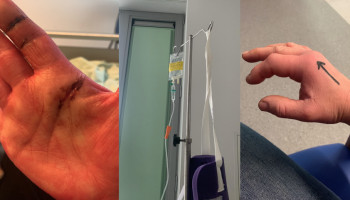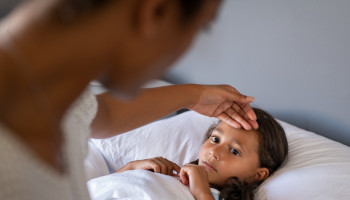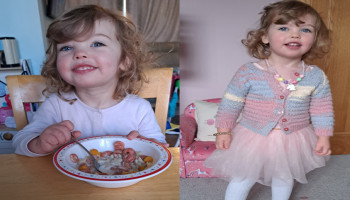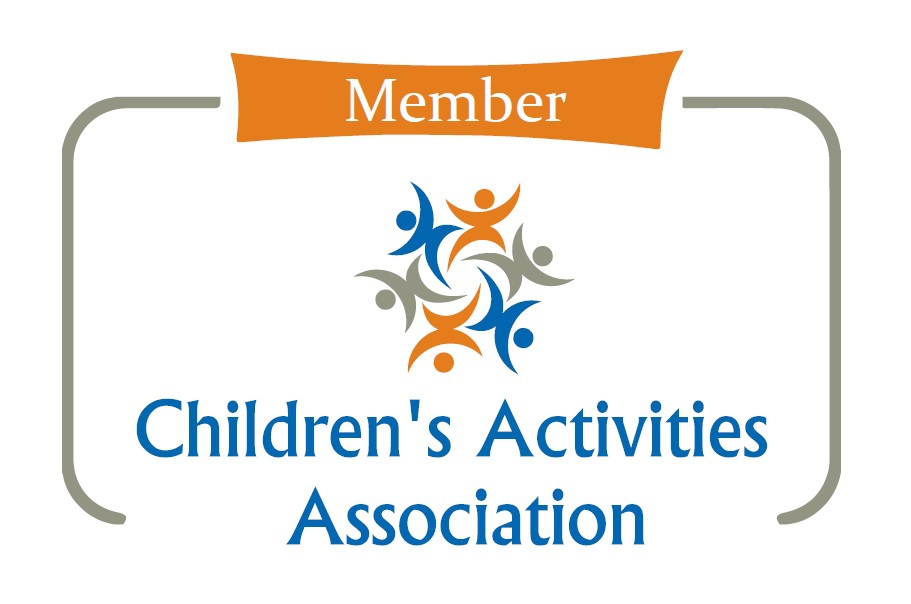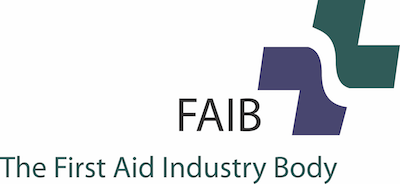It is really common for parents/carers to worry about their child choking. Many parents fear that their child will choke and they won't know what to do. However, the most important thing to remember is that there are things that you can do to help reduce the risk of your child choking and to prepare yourself with the right actions to take if they do.
Talk to child about choking and safe eating practices (if they are old enough)
One of the easiest things for parents to start doing is to have regular conversations with their child about safe eating practices and what to expect should they choke. This should not be done in a way that scares the child but as part of ongoing safety awareness. We love Mini First Aid's book 'Sit, Chop, Chew' for 3-6 year olds which takes us through a playgroup lunchtime with Freddie and his friends. By introducing these concepts early, you can start to instil good safe eating practices in your home so that children know when they are eating they should be siting down, chopping food properly (with adult help if needed) and chewing. This can also serve as a handy way to gently remind your child of what they should be doing when they end up running around the house holding a piece of toast or with a mouthful of banana which increases the risk of choking.
The book also offers a gentile introduction into what happens when we choke so that children can understand what you are talking about and what to expect if it happens to them.
You can buy your copy of Sit, Chop, Chew at Sit Chop Chew | Mini First Aid East Sussex (square.site)
If you have a baby, practice safe weaning
Weaning can be one of scariest time for parents when it comes to fear of their child choking. You can find a host of resources on the NHS website including signs that your baby may be ready to wean, suggestions for first foods and ways to reduce the risk of certain foods causing a choking hazard to weaning babies such as grating cheese rather than giving it in chunks. If you have any questions, you may also want to seek further advice from your health visitor.
Be prepared if things go wrong
We all know that choking can and does happen in babies and children. Research suggests that 1 in 10 parents admit to not knowing what to do if their child were to choke. We would always recommend that you attend a Mini First Aid East Sussex baby and child first aid class to find out about choking risks and the correct techniques to use if your child does choke. This will help you to be prepared and able to take effective action should a choking incident occur. Done correctly, the techniques that we teach are very effective so it is well worth the investment of time and money, particularly when our baby and child first aid classes are only 2 hours and £20. Find the right class for you First Aid Classes for Adults (minifirstaid.co.uk)
If asked, people will often describe a version of doing a backslap if someone were to choke but in reality this should be specific technique done in a way that is appropriate to the physiology of the child depending on their age. A serious choking incident may ultimately lead to an unconscious, not breathing child if the blockage cannot be removed who then requires CPR so it is important to be confident in this to. This is also fully covered in our class for both babies and children.
It would also be advisable for anyone offering informal childcare such as grandparents to attend a Mini First Aid East Sussex baby and child first aid class to so that you can be confident that they would know what to do if your child were to choke whilst in their care.
Know the risks and how to reduce them
There are several factors that can increase the risk of a child choking but by knowing and understanding what these are, you can be sure that you are minimising the likelihood of something going wrong wherever you can. One of the biggest risks with regards to choking is high risk foods being given whole or chopped incorrectly. This includes foods like grapes which should always be cut lengthways in halves or quarters, popcorn, hot dog sausages (which should also be cut lengthways) and marshmallows. You can buy a handy grape cutter to ensure that grapes are always cut safely for your child Grape Cutter | Mini First Aid East Sussex (square.site)
We would also advise parents to always supervise their children when they are eating. For babies, it is advisable to be confident in how to get them in and out of the highchair before giving them food even when out and about.
Remember that it isn't just food that poses a risk
Parents will often start to worry about choking around weaning age and that is because when we think about choking, we usually associate it with food. However, your child is just as at risk from choking on objects and this can be very serious depending on their size and what they are. Button batteries for example, present a well known risk to children because of their small size, use in many household items, and corrosive nature (if you suspect your child has swallowed a button battery, seek medical help immediately).
Smaller toys, pen lids and even loose change can also present a risk to a child. We recommend this simple choke tester for checking that anything that you give to your child such as a new toy is safe for them and too big to choke on. You can buy a choke tester at Choke Tester Tool | Mini First Aid East Sussex (square.site)
Most importantly...
Most importantly, don't panic. Many incidents we think of as choking are actually gagging (because the child can still cough) and choking is not an every day occurrence. We talk about gagging vs choking and how to spot the difference at our Mini First Aid East Sussex baby and child first aid class and it is well worth knowing the difference.

